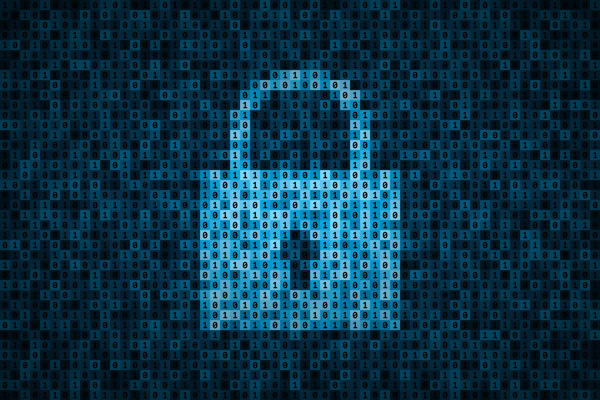Have you ever hesitated to share personal details online? You may have worried about whether a website was trustworthy. Imagine an employee discovering their company’s rewards system suffered a data breach. In both scenarios, trust is disrupted, and rebuilding it isn’t easy.
Security and compliance may not sound as exciting as personalization or flashy rewards, but they’re critical for loyalty programs. Even the most engaging experiences lose value if users worry about data safety. This article explores how robust security measures, adherence to compliance standards, and transparent communication cultivate trust. If you want enduring loyalty, ensuring your audience feels protected is essential.
Why Security and Compliance Matter in Loyalty
Evolving Threat Landscape
The digital ecosystem is more interconnected than ever. Remote work and e-commerce loyalty programs have expanded the scope of security vulnerabilities. Cybercriminals target sensitive data—employee IDs, credit card information, and personal preferences—because it can be monetized.
For example, a data breach exposing employee emails erodes trust in a company’s ability to safeguard information. Similarly, a customer loyalty program breach could lead to identity theft and harm a brand’s reputation.
Regulatory Expectations
Data privacy regulations like the General Data Protection Regulation (GDPR) in Europe and the California Consumer Privacy Act (CCPA) in the U.S. require organizations to handle personal data responsibly. Non-compliance can result in steep fines and loss of public trust.
Global organizations must navigate multiple compliance frameworks, but demonstrating compliance assures stakeholders that data protection is a priority. Neglecting compliance can harm both brand image and legal standing.
Stringent security measures and compliance foster a sense of safety, forming a foundation for lasting loyalty.
Real-Life Scenarios
Employee Concern
Nina, a sales rep, receives an email stating her company’s rewards platform may have been compromised. She worries whether her redeemed gift card or personal details are at risk. This uncertainty undermines her trust and motivation.
Customer Alarm
A loyal customer, Mark hears rumors of hackers targeting loyalty programs storing credit card details. Nervously, he checks his statements and considers leaving the program. Without reassurance, Mark’s brand loyalty diminishes.
Prompt, transparent communication and tangible assurances are critical to restoring trust when security falters.
Building Trust through Robust Security
Data Encryption and Tokenization
Encryption scrambles sensitive data—like employee IDs or payment details—making it unreadable without a decryption key. Tokenization replaces actual data (e.g., credit card numbers) with randomly generated tokens, rendering stolen data useless.

Encryption keeps personal achievements confidential for employees, and tokenization reduces credit card theft risks for customers. These measures alleviate fears of identity theft or fraud.
Authentic actions backed by tangible outcomes foster emotional connections, driving employee and customer loyalty.
Secure Authentication and Access Controls
Multi-factor authentication (MFA) adds an extra layer of protection. Employees might log in using a password and a mobile code, while customers verify accounts via fingerprint or facial recognition. Role-based access controls limit data visibility, ensuring only authorized personnel can access sensitive information.
Effective security measures reassure users that their private details are protected from unauthorized access.
Compliance as an Extension of Trust
Understanding Key Regulations
- GDPR: Requires clear consent for data collection, secure handling of personal information, and breach notifications.
- CCPA: Gives Californians the right to know how their data is used and request its deletion.
- Other frameworks, like Brazil’s LGPD and Japan’s APPI, highlight the global importance of privacy compliance.

Regular Audits and Transparency
Compliance is an ongoing process requiring periodic audits. For example, IT teams might review how customer data is stored, while HR revisits access protocols for employee tools. Sharing audit results signals accountability and reassures stakeholders that compliance is a priority.
Consistent, transparent compliance efforts demonstrate a commitment to user privacy and long-term trust.
Communication and Crisis Management
Proactive Communication
When introducing new loyalty features—like social interactions on a rewards platform—clearly explain how data will be stored and secured. Similarly, outline how data sharing is handled if launching a new payment option.
Handling Breaches and Incidents
Even with top-tier security, breaches can occur. Quick, transparent communication—including practical guidance like “change your password”—mitigates damage. Offering credit monitoring or identity theft protection demonstrates accountability.
Honest, empathetic crisis management restores confidence and signals that user well-being is prioritized.
Best Practices for Secure, Compliant Loyalty Programs

Adopt a “Privacy by Design” Philosophy
- Early Integration: Involve security and legal teams during feature development to build protections from the start.
- Minimal Data Collection: Only collect essential data to reduce risks and simplify compliance.
Invest in Employee Training
- Security Awareness: Train staff on phishing scams, password hygiene, and safe data handling.
- Compliance Know-How: Equip employees with regulatory knowledge to prevent mishandling user data.
Offer Transparent Privacy Controls
- Consent Management: Provide clear options for opting in or out of data collection.
- Accessible Policies: Use straightforward language to explain data practices.
Educating users and offering control over data fosters confidence and encourages active program participation.
The ROI of Security, Compliance, and Trust
Employee Retention and Engagement
When employees trust their data is secure, they’re more likely to engage with recognition systems and focus on their work. Trust fosters a stable, motivated workforce.
Brand Reputation and Customer Loyalty
Brands that prioritize security stand out. Customers appreciate companies investing in robust systems that enhance loyalty and reduce churn. Conversely, a single breach can irreparably damage a brand’s reputation.
Long-Term Sustainability
Organizations integrating security and compliance into their operations adapt more easily to new regulations. This approach ensures sustainability and reduces the risk of costly fines or overhauls.
Security and compliance efforts prevent negative outcomes and pave the way for healthier, enduring relationships.
Conclusion
Security and compliance may not be glamorous, but they are indispensable to loyalty programs. From encrypting sensitive data to adhering to regulations, and from proactive communication to transparent crisis management, these practices build trust and confidence.
Organizations prioritizing protection send a powerful message: “We value your trust and will safeguard it.” Secure employees and customers are more likely to engage and stay loyal. In a world of data breaches, demonstrating commitment to trust-building can set you apart and ensure lasting success.
Secure your loyalty strategy with trust and transparency. Let All Digital Rewards help you build a compliance-first loyalty program. Contact us today to learn more.
Sources
GDPR (General Data Protection Regulation)
- Official GDPR Website
- Information about EU data protection rules and citizen rights.
CCPA (California Consumer Privacy Act)
- Office of the Attorney General California | CCPA
- Overview of consumer privacy rights and business obligations under California law.
Miscellaneous Security Best Practices and Insights
- NIST Cybersecurity Framework
- NIST Cybersecurity Framework
- It provides a policy framework for computer security guidance for how private sector organizations can assess and improve their ability to prevent, detect, and respond to cyber attacks.
- Encryption & Tokenization Practices (General)
- Many industry whitepapers and research documents (e.g., from Gartner, Forrester) discuss the importance of encryption and tokenization in safeguarding sensitive data.
